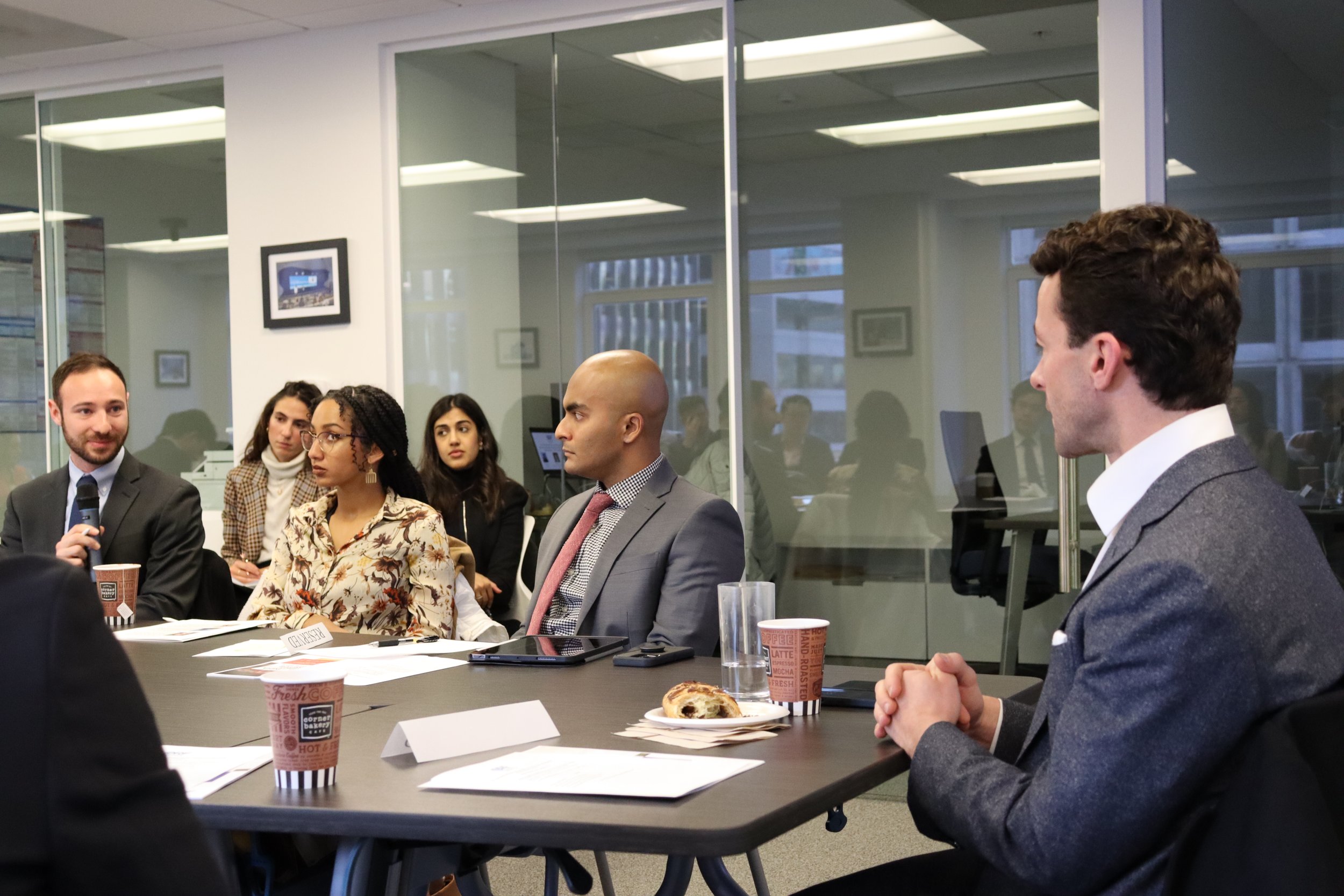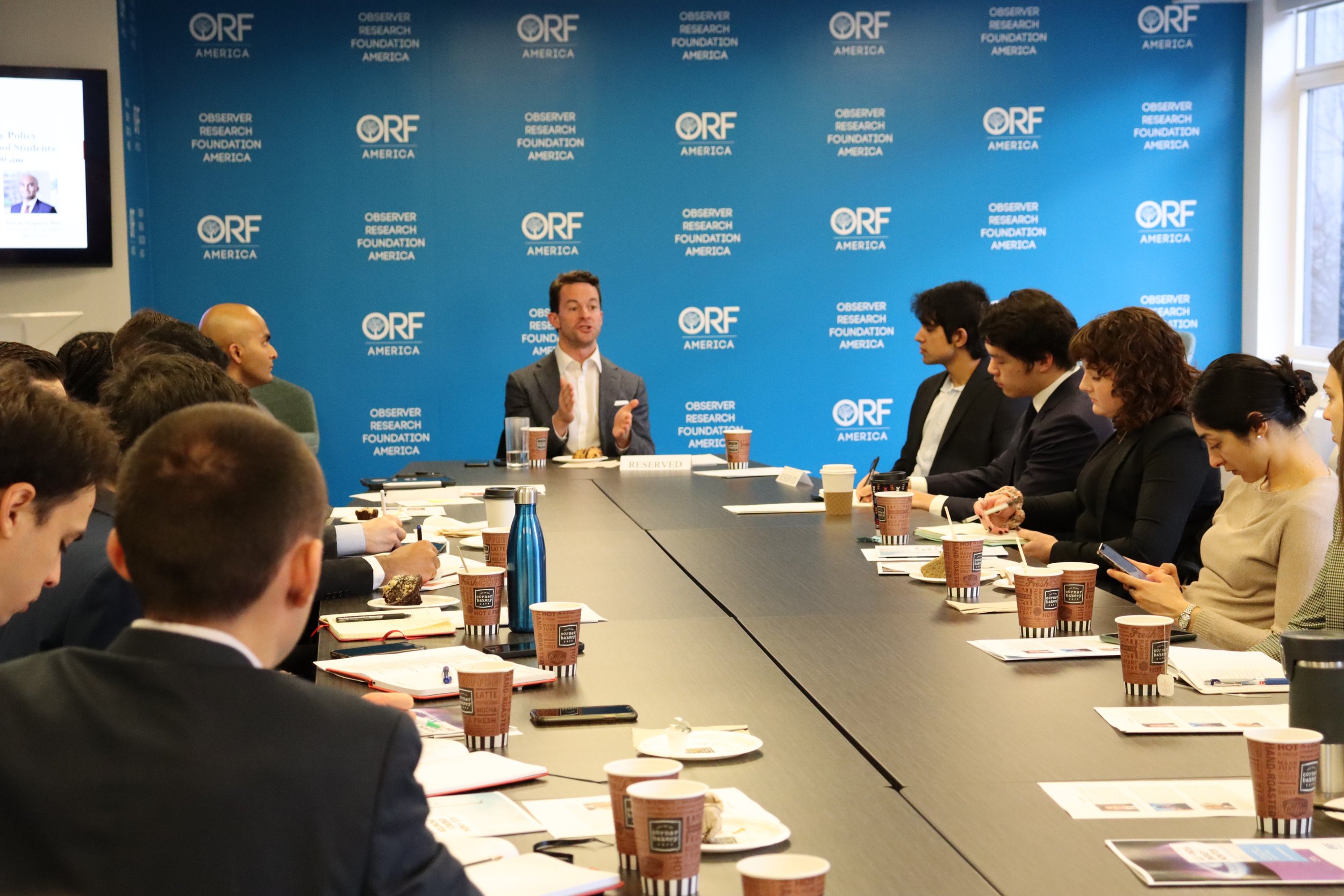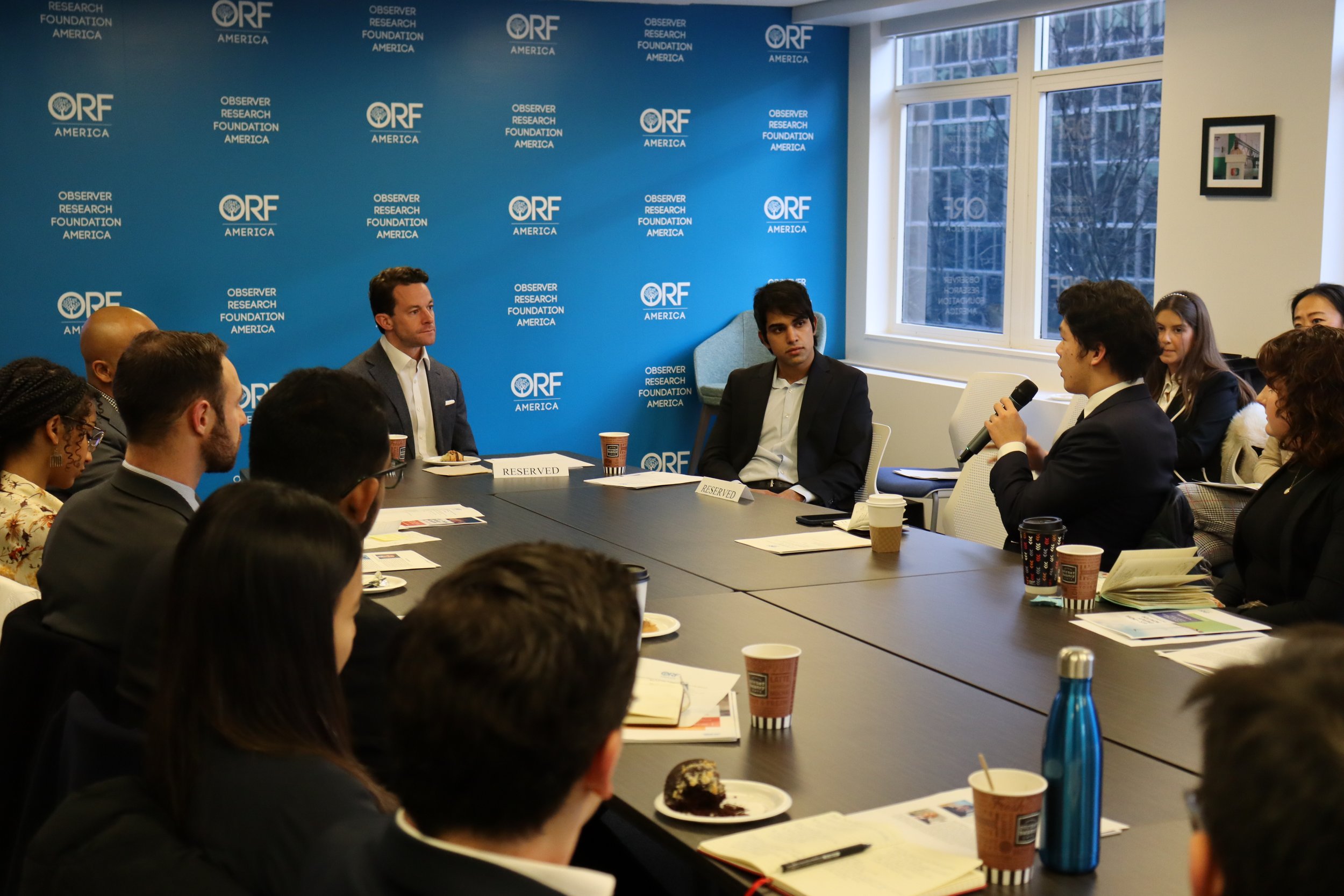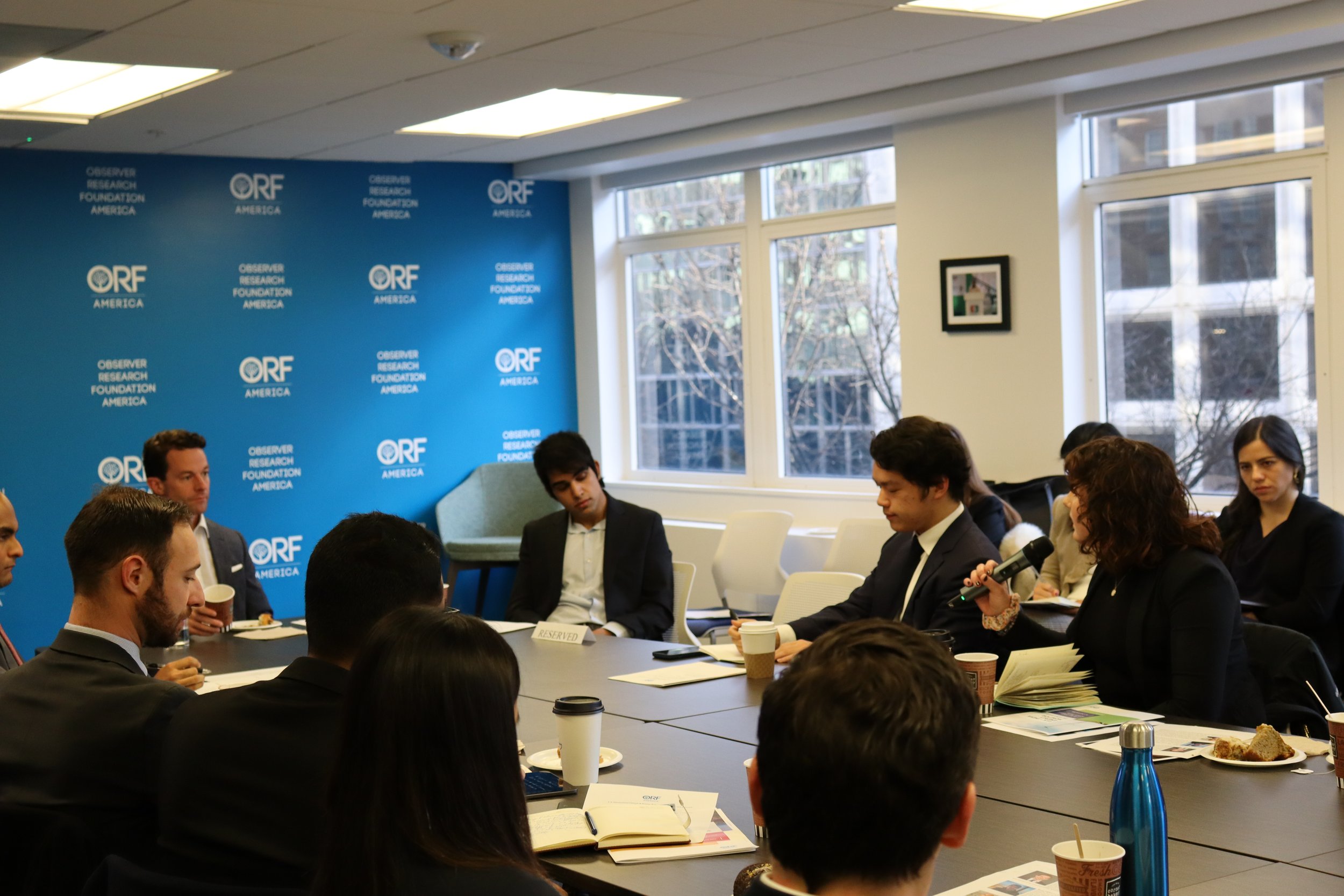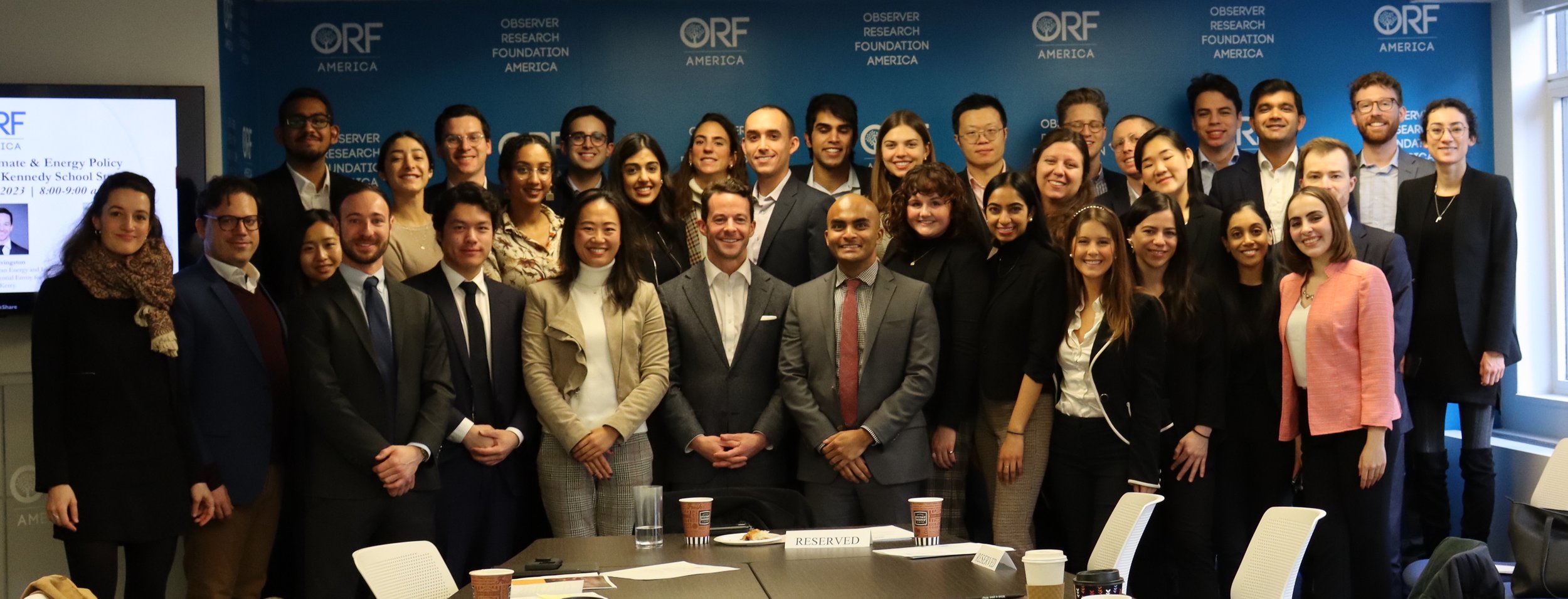ORF America hosted an in-person breakfast roundtable discussion with David Livingston, Managing Director & Senior Advisor, Clean Energy & Innovation in the office of the U.S. Special Presidential Envoy for Climate, John Kerry. Graduate students from the Harvard Kennedy School were invited to this roundtable to discuss the biggest challenges and opportunities for U.S. International Climate and Energy Policy.
In the backdrop of rejoining the Paris Agreement, participation in global climate pledges, and the passage of significant climate and energy legislation through congress, like the Inflation Reduction Act, participants discussed the leadership of the United States on global climate actions.
An overarching theme of the discussion was the national, subnational, and transnational implementation of climate diplomacy and policy. It was agreed that climate diplomacy leaves out several critical stakeholders because it is constructed around national borders and the nation state. These structures are not suitable for sectoral access and implementation of climate policy in global supply chains. Participants noted that the effects of regionally disparate climate policy have begun to materialize as climate competition.
This discussion included a special focus on the potential of government procurement to compress innovation timelines, and reduce costs of clean energy. Participants cited several examples of the successful creation of advanced market conditions through the deployment of government purchase commitments, including solar energy and Covid-19 vaccines. Most recently, similar procurement mechanisms have been introduced in the hydrogen and green shipping markets.
Featuring
David Livingston, Managing Director & Senior Advisor, Clean Energy & Innovation, U.S. Special Presidential Envoy for Climate, U.S. Department of State
Karan Takhar, Master in Public Policy Student, Harvard Kennedy School of Government
Moderator: Shayak Sengupta, Fellow in Energy & Climate, ORF America

